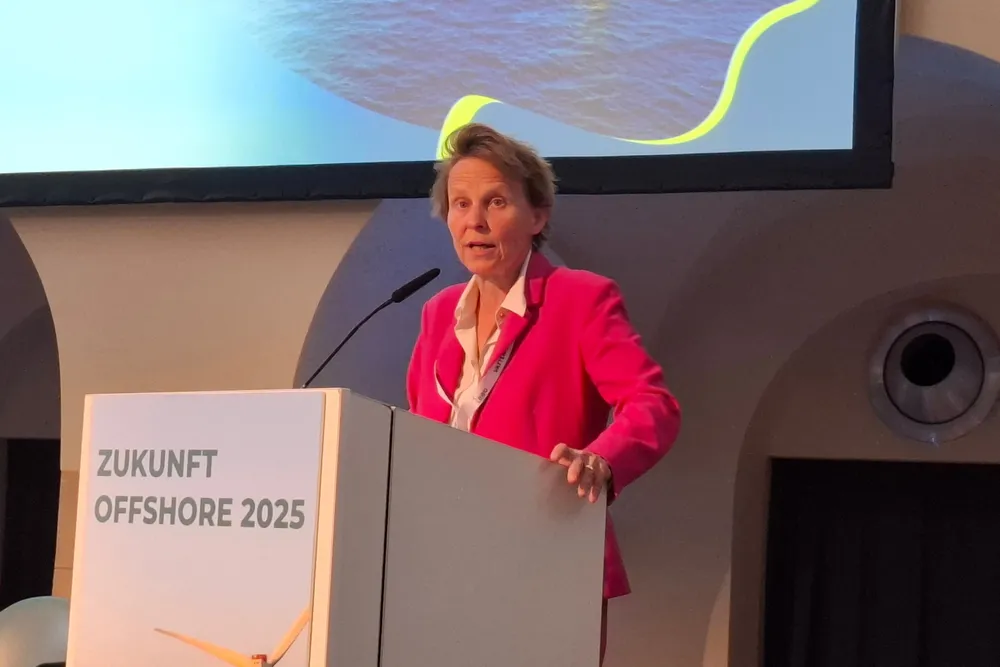German offshore wind is worried: 'Do we have to hold our breath for five years?'
New government asked to stick to 40GW by 2035 target and avoid 'back and forth' as unease grows over signals on sector

Germany’s offshore wind industry appealed to the new government under Christian Democrat (CDU) Chancellor Friedrich Merz to keep the policy direction for the sector set by its predecessor, amid unease over the new administration's plans.
The government should keep up high tendering volumes until 2030 and stick to a target of 40GW in wind capacity at sea by 2035, the German federation of offshore wind energy (BWO) demanded. That would be up from the 9.2GW operating in German seas now.
The new coalition between Merz’s CDU/CSU and the Social Democrats (SPD) has said it will keep Germany’s pledge to become climate-neutral by 2045, but has remained vague on how to achieve this, avoiding any pledges to renewables targets.
“We're being a bit cautious because we're seeing signals like the expansion and reactivation of gas-fired power plants,” BWO chairwoman Irina Lucke said at an offshore wind conference in Berlin Wednesday.
The new government’s energy policy at the moment seems like the façade of a building with no concept behind it, and “that's something that makes us a little nervous.
“We wish that we, the industry, the entire energy sector, and politicians, could come up with a long-term plan together,” Lucke said.
“We were on the right track [with the policies of the former government], and now we're sitting here a little tense and waiting to see whether we can continue on the path we've chosen, or whether we have to hold our breath for four or five years.”
Lucke also said that the new government may “need to get into gear first” and that the industry should give it a chance, while coming up with “guidelines, ideas, initiatives, and recommendations on how things can work”.
BWO managing director Stefan Thimm added that the offshore wind sector needs a stable political framework, “no back and forth on expansion targets in line with legislative cycles.”
Antoine Becker, the managing director for offshore wind at TotalEnergies in Germany, agreed.
“Let’s not rewrite the rule book every year,” he said at the same Berlin offshore conference.
“We need to trust that the system can handle the unexpected”, Becker said.
To achieve long-term stable framework conditions in the offshore wind sector, the BWO lobbied for the introduction of two-sided contracts for difference (CfDs) for offshore wind support, as well as power purchase agreements (PPAs).
For the much-needed expansion of German offshore wind harbours, the group suggested that the new government should set up a new special programme for the improvement of regional infrastructure that could be financed with funds from offshore wind tendering revenue.
"Anyone who wants cost-efficient energy supply security, industrial value creation, and climate protection must invest now in grids, ports, and production capacities," the BWO’s Lucke said.
(Copyright)